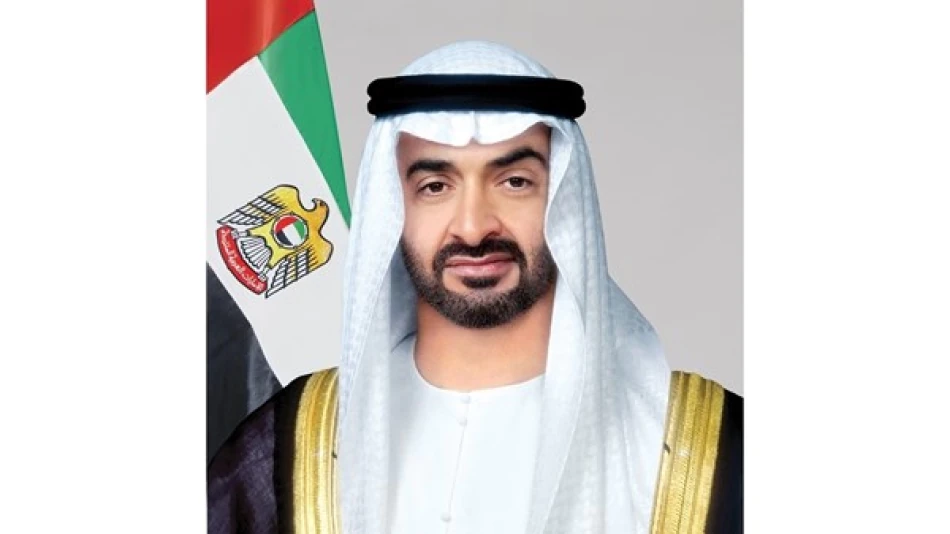
UAE Leader Reaffirms Unwavering Commitment to Patriotic Service and Safeguarding the Nation
UAE President Reaffirms National Unity Commitment on Historic Union Pledge Day
UAE President Sheikh Mohamed bin Zayed Al Nahyan has renewed his commitment to preserving the nation's founding principles as the country marked Union Pledge Day, commemorating the historic agreement that created the modern UAE federation 53 years ago. His statement underscores the Emirates' continued focus on unity as a cornerstone of its rapid economic transformation and regional leadership ambitions.
A Legacy That Shaped Modern Gulf Economics
In a post on his official X account, Sheikh Mohamed honored the July 18, 1971 pledge made by the UAE's founding father and fellow rulers to achieve the unity that the Emirati people had long awaited. This date marked a pivotal moment when seven separate emirates agreed to federate, creating what would become one of the Middle East's most economically dynamic nations.
The President emphasized the collective commitment to "continue sincere work to preserve the nation's trust" and ensure that the blessed journey toward unity remains "present in the hearts and minds of our children and grandchildren, inspiring them and providing them with determination to make the flag of the Union a symbol of goodness, success, and excellence always."
From Desert Federation to Global Financial Hub
The 1971 union agreement has proven remarkably prescient in creating the institutional framework that enabled the UAE's meteoric rise. What began as a confederation of traditional trading ports has evolved into a diversified economy that rivals Singapore and Hong Kong as a regional financial center.
Economic Transformation Through Unity
The federal structure established in 1971 allowed individual emirates to maintain their distinct economic identities while benefiting from collective strength. Dubai emerged as a global trade and financial hub, while Abu Dhabi leveraged its oil wealth to become a sovereign wealth powerhouse. This division of economic roles within a unified framework has become a model studied by other Gulf states.
Strategic Implications for Regional Leadership
Sheikh Mohamed's emphasis on preserving "the nation's trust" carries particular weight as the UAE positions itself as a bridge between East and West in an increasingly multipolar world. The country's federal unity has enabled it to pursue ambitious economic diversification while maintaining political stability—a combination that has attracted over $20 billion in foreign direct investment annually in recent years.
Lessons for Other Federations
The UAE's success in balancing local autonomy with federal coordination offers insights for other attempts at regional integration. Unlike the European Union's complex bureaucratic structure, the UAE model relies on traditional consensus-building mechanisms that have proven remarkably durable through multiple economic cycles and regional crises.
Future Challenges and Opportunities
As the UAE approaches its sixth decade, the unity forged in 1971 faces new tests from global economic shifts, climate change pressures, and generational transitions in leadership. The President's call to inspire future generations with the founding vision suggests recognition that maintaining federal cohesion requires active cultivation, not passive assumption.
The emphasis on making the Union flag "a symbol of goodness, success, and excellence" reflects the UAE's broader soft power strategy, positioning the country as a model of successful modernization that respects traditional values while embracing innovation. This balance has become increasingly relevant as other Gulf states pursue their own Vision 2030-style transformation programs.
Most Viewed News

 Layla Al Mansoori
Layla Al Mansoori






